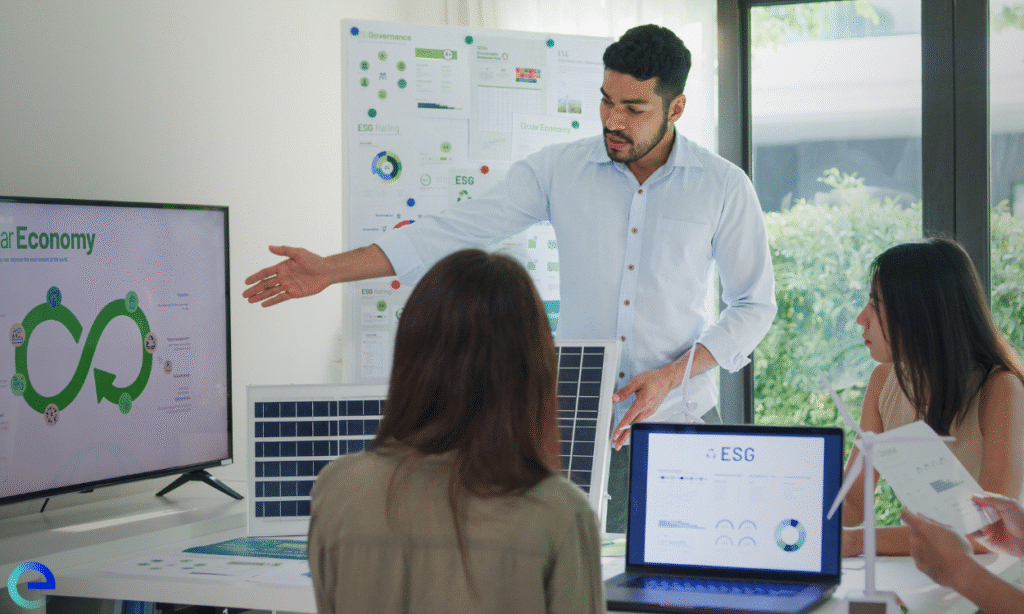Stay informed & inspired!
We love sharing insights and perspectives on the latest developments in ESG and sustainability.
Our aim is to create a platform where people can learn and engage with these important topics, and to help build a more sustainable future for all.
Whether you’re a student, professional, or simply interested in making a positive impact, we hope you’ll find our content informative and inspiring!
Building a sustainable supply chain is critical for ESG success, as supply chain emissions average 11.4 times larger than direct operational emissions. Learn about the critical steps and strategies to transform your supply chain into a competitive advantage.
The circular economy in business offers enormous financial potential and benefits that go beyond environmental impact. Businesses adopting circular initiatives are experiencing greater growth and competitiveness compared to those adhering to traditional linear models.
The article examines how companies can create a circular economy in business through grounded case studies and practical strategies that turn sustainability challenges into competitive edges.
The green finance landscape in 2025 highlights both the maturity and the growing complexity of sustainable investing. ESG bonds are still the top performers in the market, showing good results, less price fluctuation, and a clear connection between making money and helping the environment, while sustainability-linked loans provide more options for accessing sustainable funding.
With investors asking for transparency and a strong focus on ESG performance, more SMEs now consider ESG reporting. Although creating an effective ESG KPI framework can be difficult, there are simple steps to break down the process and wayst o set up meaningful sustainability metrics without spending a fortune. Small businesses that proactively establish ESG KPIs today position themselves advantageously for tomorrow's marketplace demands.
The TNFD framework changes traditional reporting by tracking nature-based resources like water, soil, and pollination and monitoring environmental effects such as deforestation and habitat loss. Organizations can now better disclose their nature-related risks through this framework, which looks at both challenges and opportunities.
With 75% of the total carbon footprint made up of scope 3 emissions, companies must learn how to measure and manage their value chain emissions to avoid financial and environmental risks. Challenges such as supplier inconsistencies and data availability complicate the process, but practical solutions exist. Walk through the quickest ways to understand, calculate, and reduce Scope 3 emissions, including useful steps to tackle a significant part of your company's total emissions.






